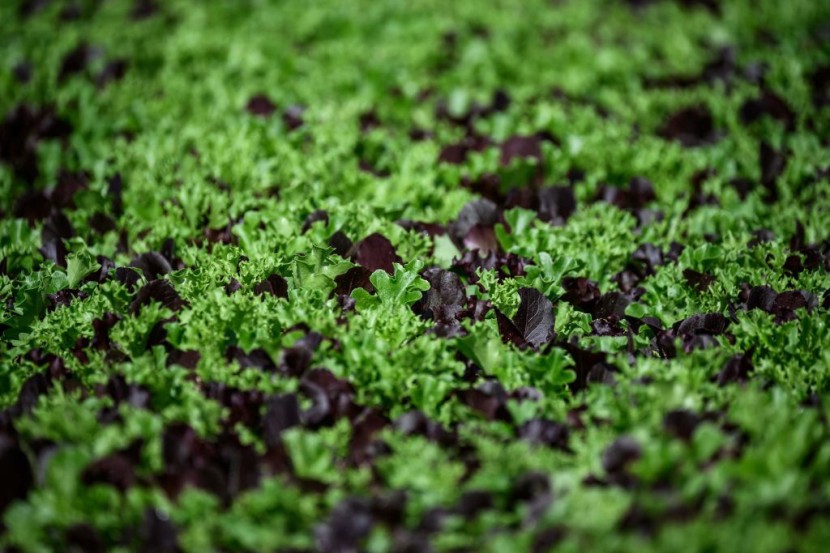Researchers suggest that lettuce grown on the International Space Station (ISS) may not be healthy for astronauts to consume.
Space lettuce is very popular for astronauts on the ISS as they can enjoy the leafy greens in a space garden called Veggie. However, scientists found that lettuce grown in a simulated microgravity environment is more susceptible to infections such as E.coli or Salmonella.
Health Concerns With Space-Grown Lettuce

In a study that was published in Scientific Reports, the researchers detailed that they grew plants in a device called a clinostat. This rotated them like a rotisserie chicken so that they would lose their sense of directionality.
In a statement, the lead author of the new paper, Noah Totsline, said that in effect, the plant would not know which way is up or down. He added that they were somewhat confusing the plants' response to gravity.
Plants have what scientists call gravity-sensing cells that cause their roots to grow downwards while the plant itself shoots upwards. However, when in microgravity environments, the plant's natural defense against stressors is less effective, as per Geo News.
Stomata, which are tiny pores in leaves and stems, help breathe and close when they sense stressors such as bacteria. During the plants' carnival ride on the clinostat, they became disoriented and opened up their pores in the presence of bacteria, instead of closing.
Totsline said that the fact that the plants remained open when presented with stressors was something that was really unexpected. The researchers concluded from the experiment that bacteria such as Salmonella are able to invade leaf tissue more easily in simulated microgravity conditions, such as that found on the ISS.
A study in 2020 on the first lettuce crop grown on the ISS between 2014 and 2016 showed that while the plants had the same nutrient content as those planted on Earth, they exhibited higher levels of bacteria.
More Susceptible to Bacteria
A professor of microbial food safety at the University of Delaware's Delaware Biotechnology Institute, Kali Kniel, said that we need to be prepared for and reduce risks in space for astronauts who live on the ISS as well as for those who could live there in the future, according to Forbes.
He argued that there is a need for a better understanding of the interactions between human pathogens on plants that are grown in space. The researchers of the study said that this is crucial because people will soon be living in space in greater numbers. It would be relatively easy to grow lettuce in hydroponic environments to supply food.
Kniel argued that one way to reduce risks is by using sterilized seeds, which decreases the chances of them having microbes. However, he said that this was vulnerable to microbes that are in the space environment and can get onto the plants that way.
Researchers are concerned that a foodborne illness outbreak aboard the ISS could derail a mission as billions of dollars are spent on space exploration. Another way that researchers tried to mitigate the risk was by providing the plants with a helper bacteria known as B. subtilis UD 1022, helping protect against Salmonella, said Zenger News.
Related Article:
Why Power Napping is a Must: Here's How Catnap Can Benefit Your Health
© 2026 HNGN, All rights reserved. Do not reproduce without permission.








